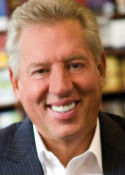It’s during the darkest, most troubling times that leaders develop and rise to the occasion. When problems confront successful leaders, they get excited about the opportunity.
When the New Economy began its slump, some leaders began wringing their hands. The left hand was dread and the right hand was anxiety, and together they put the squeeze on hope.
Other leaders, however, saw crisis and rejoiced. Whether they were in the technology sector or not, these captains of floundering ships recognized that out of problems comes opportunity.
It’s during the darkest, most troubling times that leaders develop and rise to the occasion. When problems confront successful leaders, they get excited about the opportunity.
When problems confront followers, they get discouraged. Leaders not only seize the opportunity, they take others with them. As Napoleon put it, “Leaders are dealers in hope.”
One of the greatest “dealers in hope” of all time was the explorer Sir Ernest Shackleton, who set out in 1914 with the ambitious goal of making the first land crossing of Antarctica.
But his ship, the Endurance, never even reached its base camp. It became stuck in the icy waters for months and eventually sank. Shackleton and his crew of 27 were stranded more than 1,200 miles from civilization, drifting on ice floes in the terrifying cold with just three rickety lifeboats, some tents and limited provisions.
Eventually, they reached a small island and waited while Shackleton and a handful of men took one of the lifeboats 800 miles over tumultuous seas to a whaling station. Shackleton returned with a rescue ship, and every man survived the 18-month ordeal.
Shackleton’s deft handling of his men after they abandoned ship offers several lessons on how to lead in a crisis, and here are a few examples:
1. Immediately address your staff.
Immediately address your staff offering a plan of action, asking for everyone’s support and showing confidence in a positive outcome.
Shackleton, who once described optimism as “true moral courage,” always believed he and his crew would survive, and his optimism was contagious. He communicated that optimism to everyone around him, and he kept everyone involved by seeking their opinions and by giving them tasks that made them feel like they were part of the solution.
2. Give your staff an occasional reality check.
Over time, people lose their focus and start to treat a crisis situation as “business as usual.” When Shackleton’s stranded crewman became so comfortable that they started ordering the cook to make tea to their personal liking, he quickly instituted rationing.
3. Keep malcontents close to you and win their support.
The late Billy Martin said that when managing major league baseball teams, he knew he’d have 15 guys who would run through a wall for him, five guys who hated him and five guys who were undecided. “The trick,” he said, “is to keep the five who hate you from the five who are undecided.”
Shackleton was great at handling conflict successfully. In one instance, in fact, he made it a point to share a tent with one of the potentially biggest dissenters.
4. Inspire people through your example.
People in crisis have four fundamental needs—the need for clarity, the need to have steady emotions, the need to take action and the need for security—and a leader addresses them all through example.
Shackleton continually inspired with strong, symbolic acts. When it became necessary to jettison all unnecessary weight for the trek across the ice, he tossed away his gold watch and a cigarette case. And in the lifeboat journey through frigid, stormy seas, he daringly stood in the stern of their small craft, guiding its course.
5. Use humor and other diversions to relieve tension.
Shackleton recognized that under extreme pressure, the ability to lighten up and occasionally cut loose neutralizes fear and enables a team to focus, re-energize and prevail over daunting obstacles. For instance, one of the few items that Shackleton rescued from the sinking ship was a crewman’s banjo so they could have music.
6. Willingly take big risks.
More than a year after the shipwreck, facing dwindling food with little hope of rescue, Shackleton knew that survival depended on a bold act—reaching an outpost by crossing 800 miles of tempestuous sea. It was perilous, but the alternative was worse. He took the chance, and everyone survived.
In the end, Shackleton succeeded because he inspired his men to do great things. He didn’t crack the whip from behind. “Managed people merely follow orders, they don’t contribute,” says Michael H. Dale, retired president of Jaguar North America, who used Shackleton’s story to spur his sales staff to record revenue. “If you have the kind of commitment Shackleton had,” he says, “you can absolutely achieve miracles.”
free monthly e-newsletter: Leadership Wired
available at www.INJOY.com.
John Maxwell grew up in the 1950s in the small Midwestern city of Circleville, Ohio. John's earliest childhood memory is of knowing that he would someday be a pastor. He professed faith in Christ at the age of three, and reaffirmed that commitment when he was 13. At age 17, John began preparing for the ministry. He attended Circleville Bible College, earning his bachelor's degree in 1969. In June of that same year, he married his sweetheart, Margaret, and moved to tiny Hillham, Indiana, where he began his first pastorate.
While serving in his second church, Maxwell began to study the correlation between leadership effectiveness and ministry effectiveness. On July 4, 1976, while preaching at a service commemorating America's bicentennial, John sensed that God was calling him into a ministry to pastors. Within days after that event, pastors began to contact him, asking for his assistance in nurturing their churches. Over the next four years, on an informal basis, John helped scores of fellow pastors. Then, in 1980, he was asked to become Executive Director of Evangelism for the Wesleyan denomination.
Though his time at Wesleyan headquarters was productive, John soon realized that his deeper desire was to help pastors from numerous denominations. He knew that desire would be unfulfilled if he were to stay at denominational headquarters. As a result, in 1981 John accepted the call to return to the pastorate, this time at Skyline Wesleyan Church in the San Diego, California area. But he did so with the church's blessing to pursue his vision. The Skyline congregation allowed him to continue mentoring and assisting pastors even as he led them to new levels.
In 1985, as he continued to equip and encourage other pastors, John took the next crucial step in leadership development. He founded a new company called INJOY and created the INJOY Life Club, featuring a monthly tape for leaders. The fledging operation, established in the corner of a garage, was soon bursting at the seams. The INJOY Life Club tapes were received with great enthusiasm, and the number of subscriptions quickly increased from hundreds to thousands. Simultaneously, the demand for other resources and seminars exploded. Pastors from coast to coast were responding, and their desire for help was even greater than John had anticipated.
As the years passed, INJOY began demanding more and more of John's time. In 1995, he resigned from his position as senior pastor at Skyline following a very fruitful 14-year tenure. The church had tripled in size and its lay ministry involvement had increased ten-fold. Dr. Maxwell is in great demand today as a speaker. Through his bestselling books, audio and video resources, and major conferences, he communicates directly with more than one million people every year. He is frequently asked to speak for organizations such as Promise Keepers and Focus on the Family, but his greatest joy and desire is to help pastors become better leaders.
Because the need for leadership development knows no borders, John established EQUIP, a non-profit organization which trains leaders in urban communities, academic institutions, and within international organizations. EQUIP is also spearheading a movement which has enlisted more than one million pastoral prayer partners who covenant to pray specifically for those who shepherd God's flock.
John continues to seek new opportunities to help churches and church leaders. He knows that one thing is constant: the only hope for the world is salvation through the Lord Jesus Christ, who gives life abundantly.






